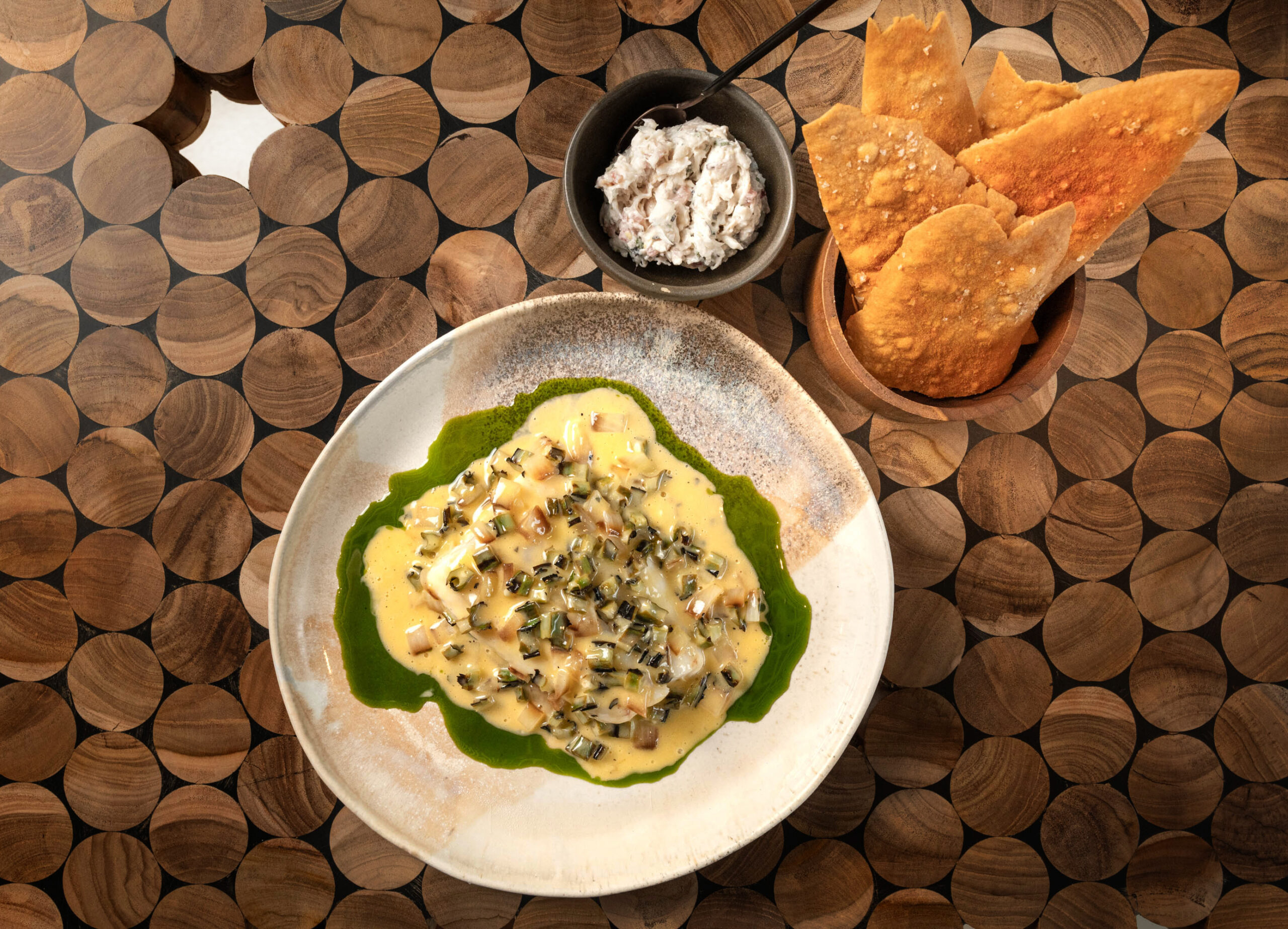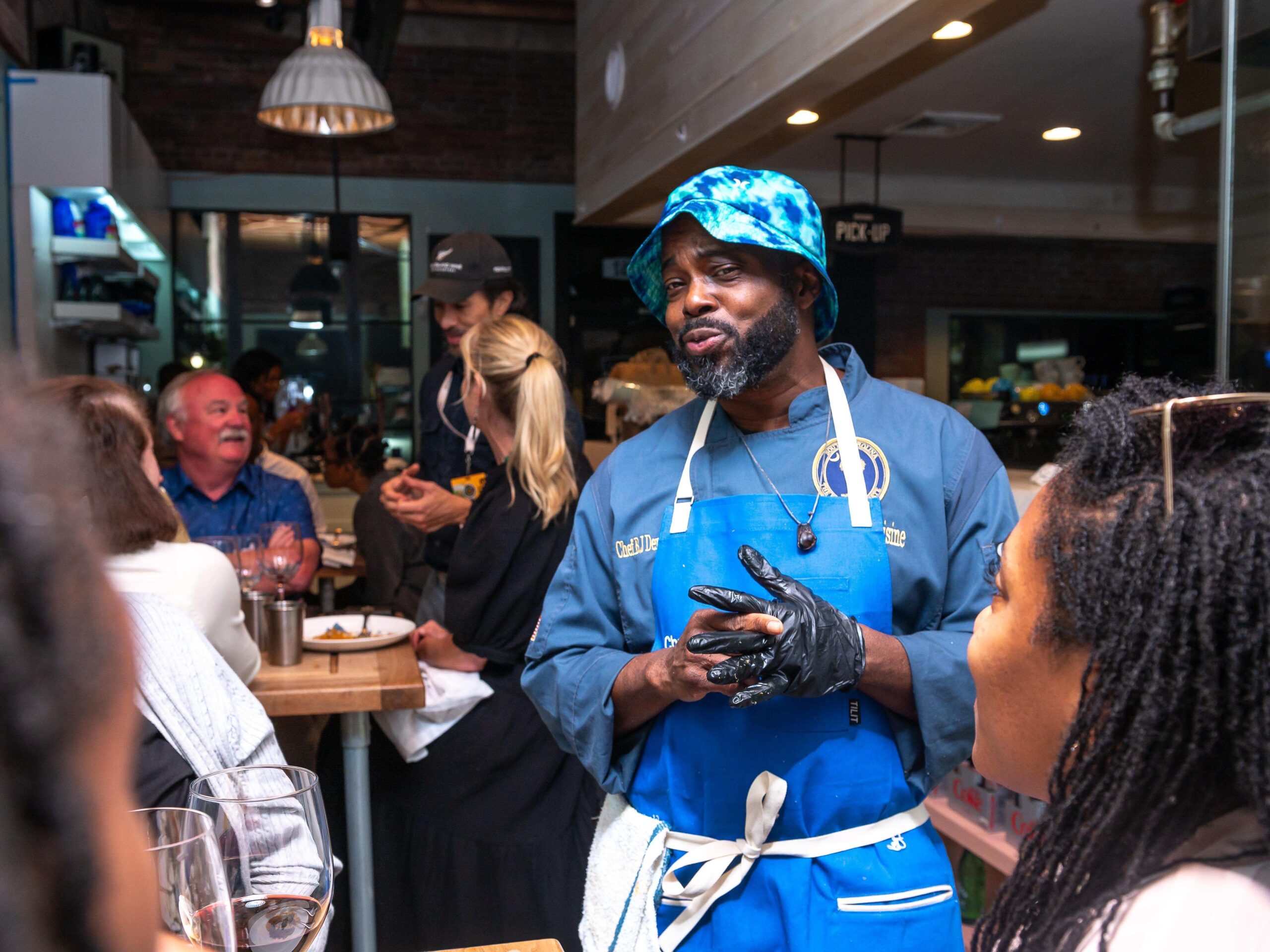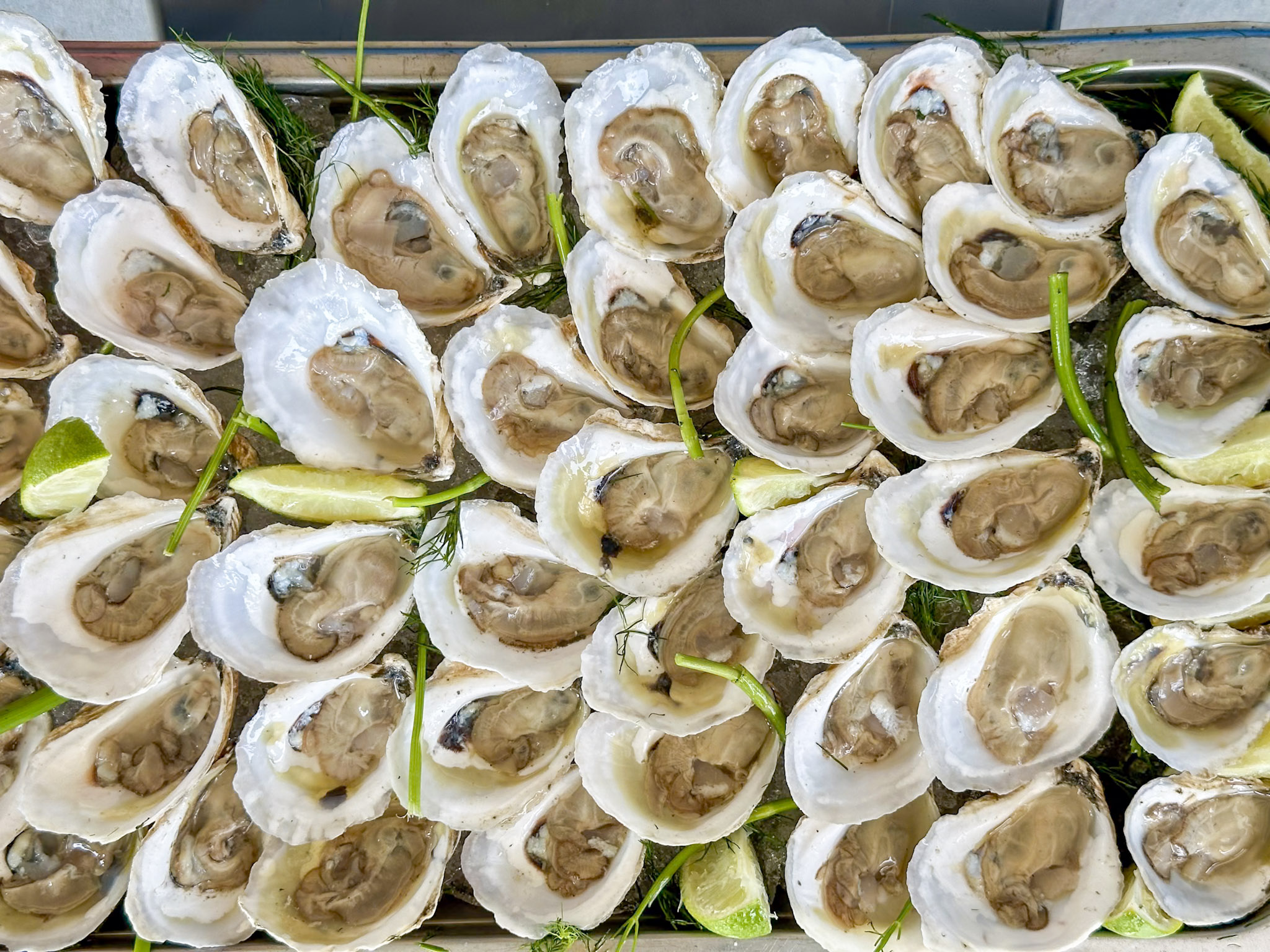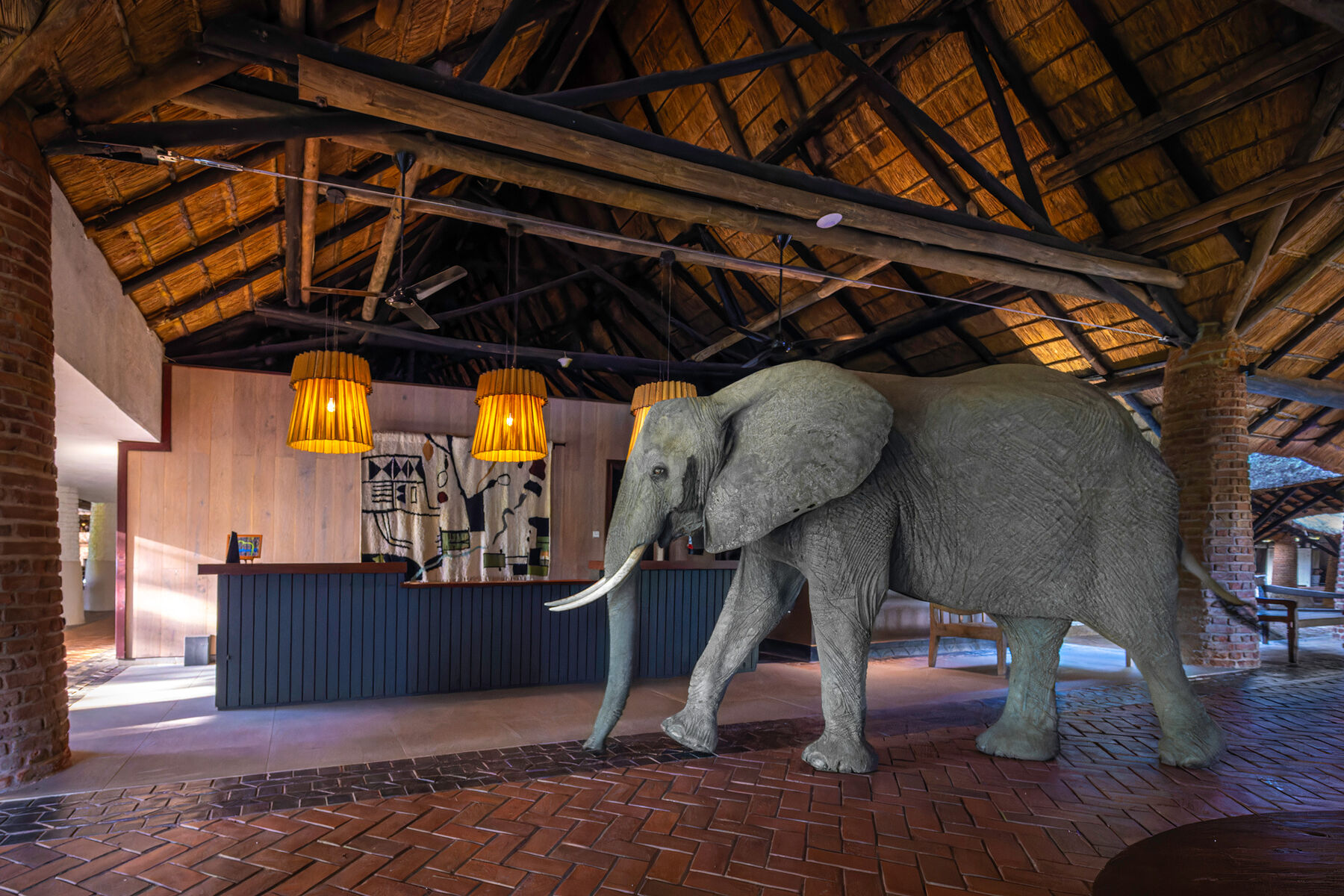NORTH STARS:
Waste Management
Production & Consumption
Carbon Footprint
“The traditional restaurant industry is resource hungry and generates large volumes of waste. AIR seeks to address this problem by developing a circular urban food system and dining room.”
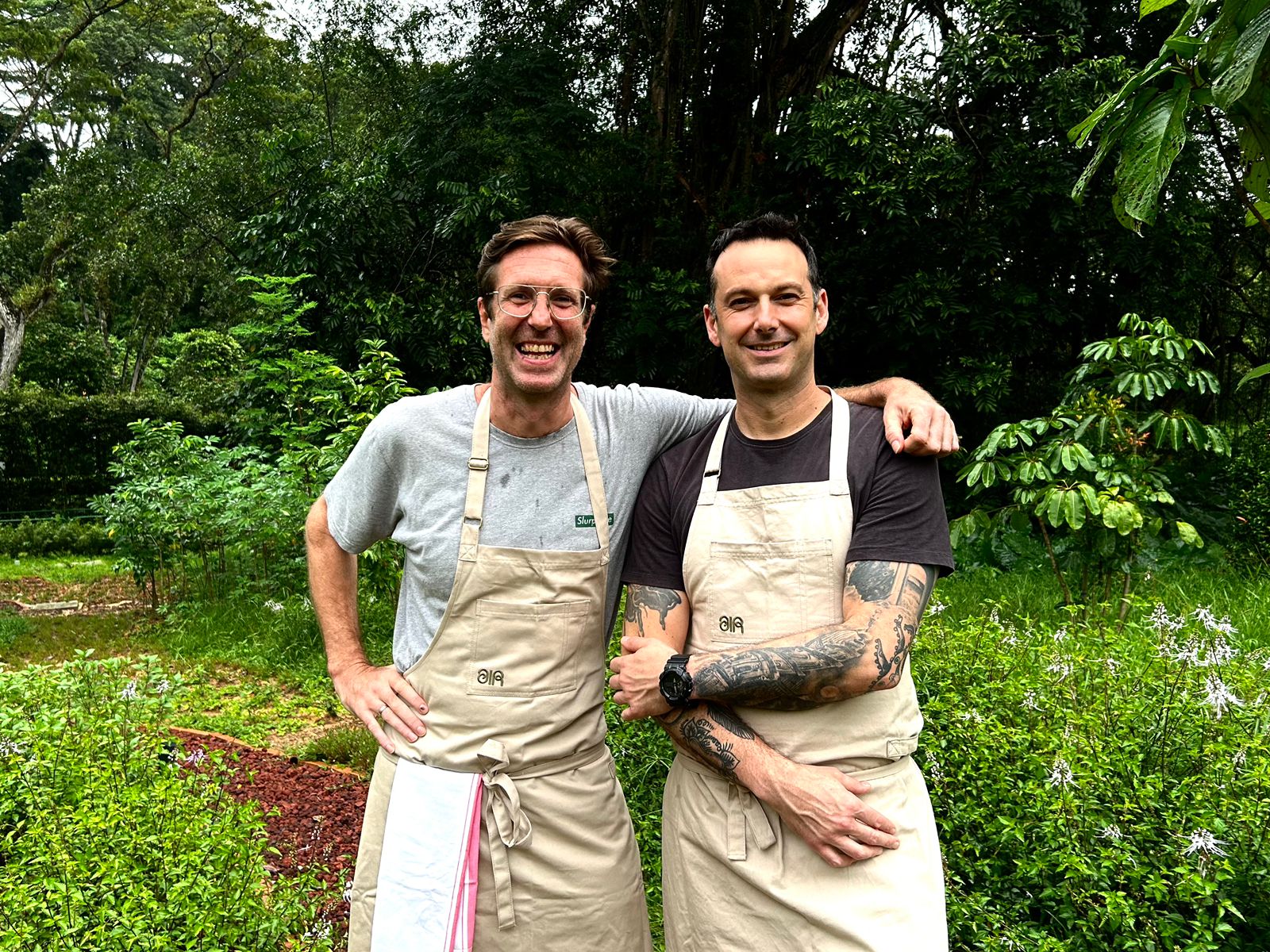
Chefs Matt Orlando and Will Goldfarb at Air. Courtesy of Air.
The Azure Road Take
Instrumental hip-hop floats through AIR’s dining room, a laidback semi-open space tethered to nature through natural organic materials and repurposed furniture, wood tables, and decor. Though diners might not suspect the level of sustainability work happening in the kitchen, a stroll around the grounds, notable for its gardens and expansive green lawn in a land-scarce city, might offer clues. Of course, anyone seeking more information about the concept will quickly figure out that AIR represents one of Singapore’s most exciting experimental food projects. The acronym AIR stands for awareness, impact, and responsibility, a theme bolstered by the tagline: “forget the talk, we are all about action.” Indeed, during a recent dining experience, every dish creatively embodied that ethos, including a flavor-rich plate of “whole fish” which appeared to be missing its head and bones.
Sustainability Chops
Chef Matt Orlando has long innovated in the culinary world. From his lauded zero-waste kitchen at Amass in Copenhagen to his latest circular dining project in Southeast Asia, he’s constantly devising ways to reduce food scraps and upcycle ingredients. In collaboration with Chef Will Goldfarb, AIR is his latest venture in Singapore. The project, which opened in March 2024, debuted a 40,000-square-foot campus in Dempsey Hill replete with a restaurant, research space, garden farm, and cooking club.
The traditional restaurant industry is resource hungry and generates large volumes of waste. AIR seeks to address this problem by developing a circular urban food system connected to a dining concept that showcases their work while feeding patrons. While every dish on the menu has multiple components and techniques involved, one plate has caught the attention of diners: “whole fish.”

The Air Campus. Courtesy of Air.
The Bite
Preparing a zero waste ‘whole coral grouper for two’ demands several techniques. First, to make use of the collar and head, the kitchen team steams and smokes them for a rillette served with creme fraiche. Next, the grouper is fileted, the meat confited then topped with charred white and green onions topped in black garlic beurre blanc. A warm lavash made from fish bones comes served in a basket on the side to dip into the flavorful sauce.
The resourceful magic of this dish comes from the use of a pressure cooker, a technique Chef Orlando developed in 2017 at Amass. While experimenting with ways to use fish as a whole ingredient, he discovered he could cook spiky bones down into a creamy edible ingredient by pressure cooking them until yielding. To enhance the flavor of this dish at AirCC, Orlando combines the bones with lemongrass and chilies, then purees the mixture before folding into tapioca starch, rice flour, and all-purpose flour to form a dough. The resulting dish is lavash, or a thin flatbread. The remaining parts of the fish go into a stock, which Orlando reduces and emulsifies with herb oil and citrus to form a vinaigrette.
Voilà. Not a single bite of fish wasted, yet neither a head or bones visible on the plate.
Origin Story
Inspiration for this dish came from Orlando’s obsession with making noodles from fish skeletons. His experiments started in earnest in 2017 after discovering that the extra protein helped with the structure and texture of noodles. With slight adjustments to the dough recipe, he now uses fish bones to create the lavash, the final piece of the zero waste ‘whole fish’ puzzle.
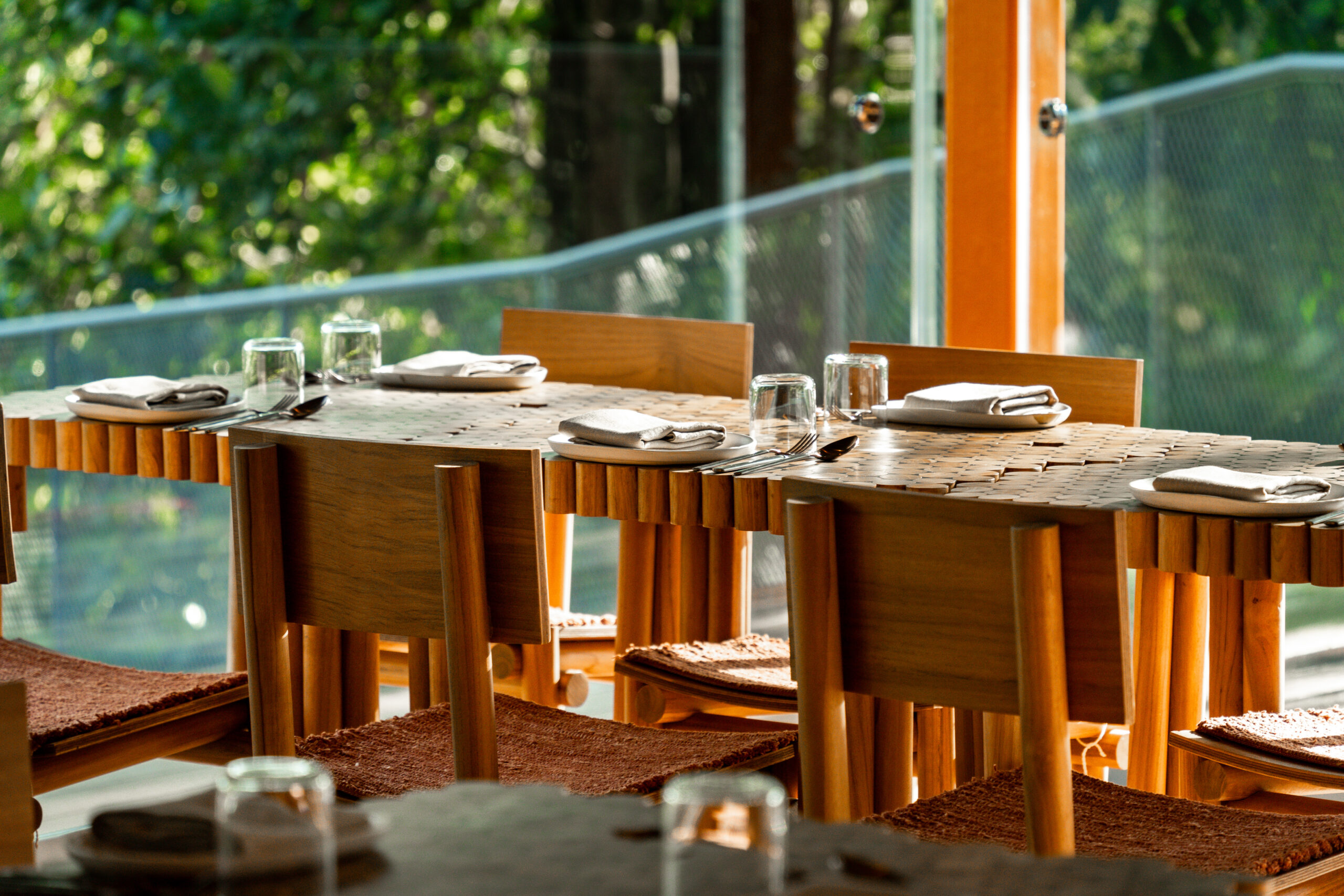
Downstairs dining at Air. Courtesy of Air.
Restaurant Vibe
Like much of Singapore’s architecture and design, AirCC blends the indoors and outdoors through plants, gardens, and a lush landscape visible from diners’ tables. AIR occupies a historical barracks complex that once served as a clubhouse for civil servants. Guests are greeted by a 330-foot walkway built to blend into the topography and connect the entire campus. The wooden stairs provide a demarcation between AIR’s lawn and garden, while linking to the two-storey modernist building that houses the restaurant, research space, and cooking club.
A 45-seat restaurant on the ground floor faces the lawn. On cooler days, a wall of glass slides open to create a semi-outdoor dining space with extended terraces. The second floor houses a more intimate 45-seat dining area that also overlooks the surrounding green spaces. Diners can wander the adjoining research space to catch a glimpse of the action or talk to chefs about their work.
AIR’s circular campus was designed by OMA, a leading international partnership practicing architecture, urbanism, and cultural analysis.
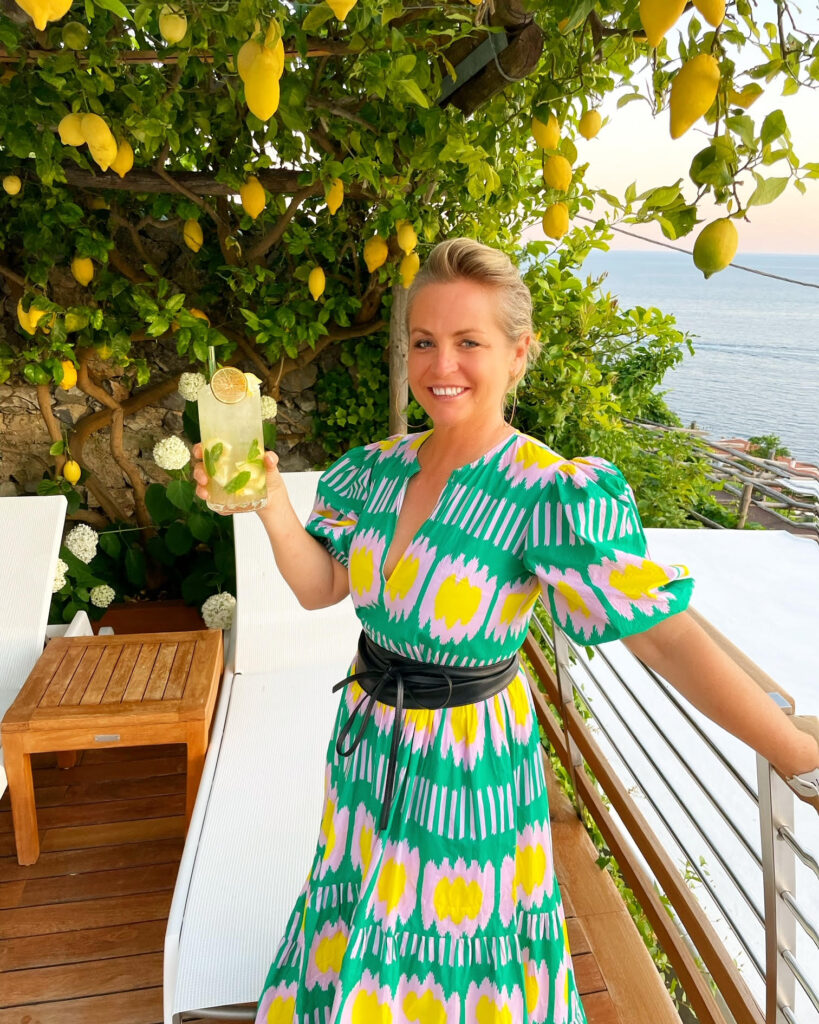
Founder and CEO of Azure Road, Lauren Mowery is a longtime wine, food, and travel writer. Mowery continues to serve on Decanter Magazine’s 12-strong US editorial team. Prior to joining Decanter, she spent five years as the travel editor at Wine Enthusiast. Mowery has earned accolades for her writing and photography, having contributed travel, drinks, food, and sustainability content to publications like Food & Wine, Forbes, Afar, The Independent, Saveur, Hemispheres, U.S. News & World Report, SCUBA Diving, Plate, Chef & Restaurant, Hotels Above Par, AAA, Fodors.com, Lonely Planet, USA Today, Men’s Journal, and Time Out, among others.
Pursuing her Master of Wine certification, she has also been a regular wine and spirits writer for Tasting Panel, Somm Journal, VinePair, Punch, and SevenFifty Daily. Mowery is a graduate of the University of Virginia and Fordham Law School, and she completed two wine harvests in South Africa.
Follow her on Instagram @AzureRoad and TikTok @AzureRoad


